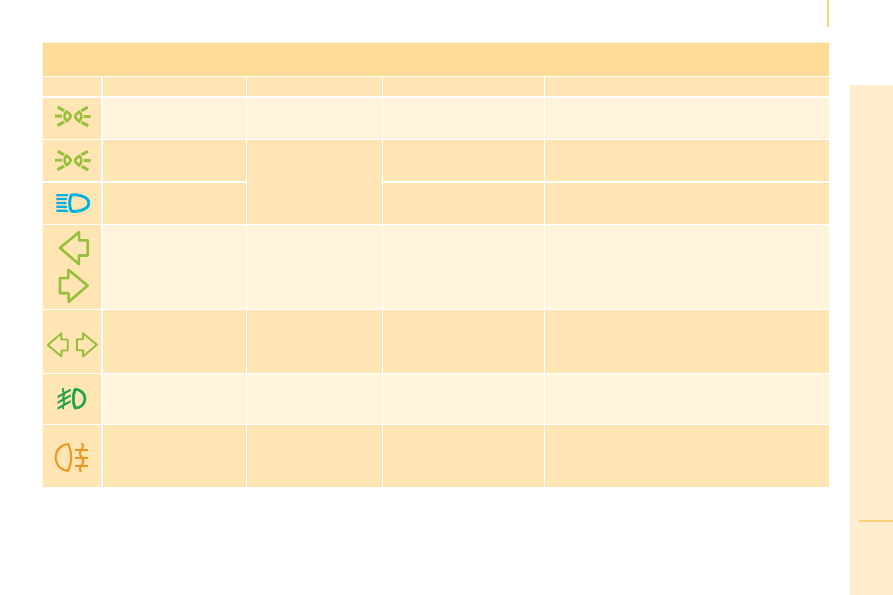Citroen Nemo (2015 year). Instruction - part 3

31
3
READY
T
O GO
Instruments and controls
Warning lamp
is
indicates
Solution - action
Sidelamps
on.
a manual selection.
Turn the ring on the lighting control stalk to the
first position.
dipped beam
headlamps
on.
a manual selection.
Turn the ring on the lighting control stalk to the
first position.
Main beam headlamps
a pull on the control stalk.
Pull the lighting control stalk to return to dipped
beam.
direction indicators
flashing with an
audible signal.
a change of direction
using the lighting control
stalk.
To the Right: press the stalk upwards.
To the Left: press the stalk downwards.
Hazard warning lamps
flashing with an
audible signal.
the hazard warning lamp
switch, located in the
middle of the dashboard,
has been pressed.
The left and right direction indicators, and the
associated warning lamps, flash simultaneously.
Front foglamps
on.
that the button on the
dashboard has been
pressed.
Manual selection.
The foglamps only operate if the sidelamps or
dipped beam headlamps are on.
Rear foglamps
on.
that the button on the
dashboard has been
pressed.
Manual selection.
The foglamps only operate if the dipped beam
headlamps are on. When visibility is normal,
switch the foglamps off.